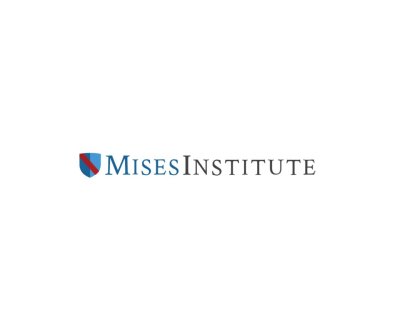Court Rejects (Largely on First Amendment Grounds) Title VI Lawsuit Over Alleged Anti-Semitism at Haverford College
An excerpt from the 12K+-word opinion by Judge Gerard McHugh (E.D. Pa.) yesterday in Landau v. Corp. of Haverford College (for more, read the whole opinion, and I’ll also post separately about the court’s allowing the breach of contract claim to go forward, but only for nominal damages):
As recognized in my first opinion in this action [see here -EV], dismissing Plaintiffs’ First Amended Complaint, antisemitism is a serious problem. Where antisemitism results in a deprivation of educational opportunities, federal law provides a remedy. And where the record supports it, some federal courts have permitted parties to proceed with such claims.
Here, without minimizing to any degree the extent to which Jewish students in the tumult of the current global and political climate might feel profound discomfort, Plaintiffs’ Second Amended Complaint still struggles to meet the threshold of what is required to state a Title VI claim under federal law. While Plaintiffs paint a picture of a stressful campus climate for Jewish students, many of the incidents pled fall within the protection of the First Amendment.
In other instances where College officials appear vulnerable to criticism, their response to the situation cannot be deemed deliberate indifference…. I will therefore grant Defendant’s Motion to Dismiss Plaintiffs’ Title VI claim ….
[1.] Public, Political Speech is Protected by the First Amendment.
Higher education institutions are prototypical marketplaces of ideas. College campuses have served as historical sites of foment and the breeding grounds for progress. In periods of social unrest, emblematic of the American story, “intellectual advancement has traditionally progressed through discord and dissent, as a diversity of views ensures that ideas survive because they are correct, not because they are popular.” Rodriguez v. Maricopa Cnty. Cmty. Coll. Dist. (9th Cir. 2010).
A court enforcing a federal statute must do so in a way that comports with the Constitution. Although both important, Title VI and the First Amendment are naturally in tension. “A disparaging comment directed at an individual’s sex, race, or some other personal characteristic has the potential to create a ‘hostile environment’—and thus comes within the ambit of anti- discrimination laws—precisely because of its sensitive subject matter and because of the odious viewpoint it expresses.” Saxe v. State Coll. Area Sch. Dist. (3d Cir. 2001). But “speech on matters of ‘public concern’—expression that ‘can be fairly considered as relating to any matter of political, social, or other concern to the community’—is entitled to ‘special protection’ under the First Amendment’ and generally ‘cannot be restricted simply because it is upsetting or arousing contempt.'” Gartenberg v. Cooper Union (S.D.N.Y. 2025). However noble the objective of nondiscrimination, institutions cannot be threatened with civil liability for declining to censor First Amendment protected speech.
Not all speech is protected by the First Amendment. But there are no allegations here that constitute true threats, incitement, fighting words, obscenity, or any other category of unprotected speech. “Speech ‘on matters of public concern, directed to the college community’ will generally fail to ‘constitute unlawful harassment.'” Gartenberg (citing Rodriguez). A reasonable person should understand that such public speech, “directed to the community at large through generally accepted methods of communication, is very different than targeted, personal harassment, aimed at a particular person.” Only one allegation here involved speech targeted at a particular Plaintiff.
It would be a dangerous overreach for federal courts to referee the controversies sparked by campus speech. See Keyishian v. Bd. of Regents (1967) (the First Amendment “does not tolerate laws that cast a pall of orthodoxy over the classroom.”); Eugene Volokh, Freedom of Speech and Workplace Harassment, 39 U.C.L.A. L. Rev. 1791, 1817 (1992) (“The government cannot escape First Amendment scrutiny for its speech restriction by forcing someone else, on pain of liability, to implement that restriction.”). That responsibility instead belongs to college administrators, and perhaps more importantly, to students—who harness the immense power to talk with one another and change minds, even when doing so demands courage. But where Haverford declined to take action to suppress or regulate pure speech on matters of obvious public concern directed at the campus community, civil liability cannot be imposed, for a robust First Amendment remains the bedrock of a democratic society.
Many of Plaintiffs’ allegations fall into the category of pure, protected speech. Although Plaintiffs may have found much of this speech reprehensible, there is no legal cause of action for upset feelings. The following incidents fall within this category.
[i.] The “Weaponization of Covid” Lecture
In March 2024, Haverford students advertised a lecture with the title “Mass Death on all Fronts: Israel’s weaponization of Covid against Palestinians.” Plaintiffs allege that there were “many complaints” from students, alumni, parents, and Jewish community members, who thought this lecture was a dog whistle to the age-old blood libel. {The blood libel is an antisemitic trope dating back to the seco
Article from Reason.com

The Reason Magazine website is a go-to destination for libertarians seeking cogent analysis, investigative reporting, and thought-provoking commentary. Championing the principles of individual freedom, limited government, and free markets, the site offers a diverse range of articles, videos, and podcasts that challenge conventional wisdom and advocate for libertarian solutions. Whether you’re interested in politics, culture, or technology, Reason provides a unique lens that prioritizes liberty and rational discourse. It’s an essential resource for those who value critical thinking and nuanced debate in the pursuit of a freer society.



